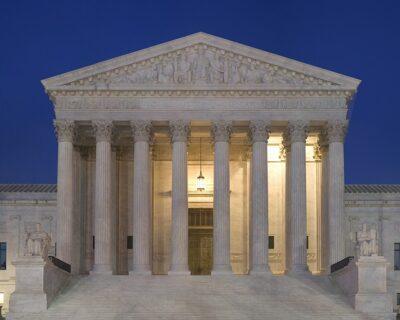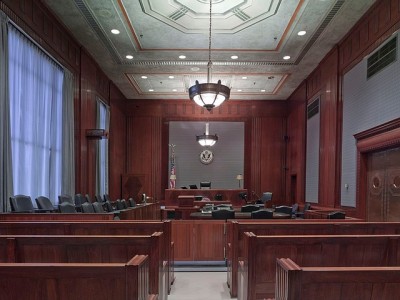The US Supreme Court could grant prosecutors the power to stop you from using your own money to hire a defense attorney in a major case the justices are considering.
In Luis v. US, the federal government is arguing it has the power to freeze all of a defendant’s assets, including those not earned through crime.
“What the government proposes to do is financially cripple someone before they’ve been convicted, before they’ve had a trial and not allow them to use assets that are theirs to try to match the government in the courtroom,” defense attorney Howard Srebnick told the media, referencing the Nov. 10 oral arguments.
Srebnick is representing Sila Luis, who owns home health care companies and is accused of a scam to defraud Medicare. The US attorney froze all of Luis’s assets, including money not related to the alleged fraud, after it indicted her in 2012, NPR reported. Srebnick contends that deprives Luis of her Sixth Amendment right to counsel by taking away money she could use to hire a defense attorney.
Discover The ONLY Way Back To True Freedom And Liberty In America…
Federal prosecutors contend that Luis would not have enough money to pay restitution to Medicare if she is allowed to use the money to hire a lawyer. Interestingly enough, the government admits that at least part of Luis’s money did not come from the purported scam.
The Sixth Amendment, among other things, guarantees “the right to have the Assistance of Counsel for … defence.”
The justices seemed divided. US Supreme Court Justice Stephen Breyer was skeptical of the government’s argument.
“The principle is that the government, without proving that he’s guilty of any crime beyond a reasonable doubt, can take all of his money,” said US Supreme Court Justice Stephen Breyer referencing not Luis but a theoretical defendant. “… I’ve never heard of such a principle.”
Breyer added: “And I’m saying it’s pretty hard for me to think in a country which says that before he’s convicted, you have to release him on bail except in unusual circumstances, that nonetheless, you can take all his money away so he can’t hire a lawyer.”
Want To Know About The REAL Constitution And What The Founders Truly Intended?
But Justice Samuel Alito asked tough questions of Srebnick, arguing that if all of the money is spent, there will be no money left for the victims if Luis is convicted.
“Your answer is that the defendant’s right to hire counsel of choice takes precedence over the rights of the victims, and you would say that no matter how strong the proof is?” Alito asked.
Justice Anthony Kennedy, often the swing vote in close cases, wondered what would happen if the government wins the Supreme Court case.
“It seems to me if the government prevails in this case, every state in the union, every locality could say that in the event of … any crime involving bodily injury … that the government is entitled to [freeze assets] even if the consequence is that in most of those cases most people would not be able to afford counsel,” Kennedy said.
Said Chief Justice John Roberts, “This could apply to any law on the books.”
The issue in the Luis case is “tainted” and “untainted” assets. Tainted assets are moneys generated by a crime or property or investments purchased with such funds. Untainted assets are funds people earn though legal activities, such as salaries.
Deputy Solicitor General Michael Dreeben contends that prosecutors have the right to freeze assets in fraud cases because there is no way of knowing how much of a defendant’s money came from the crime.
“This is basically a zero-sum game,” Dreeben told the justices. “Either there will be money available at the end of the case for the victims or the money will have been spent on lawyers.”
Bloomberg columnist Noah Feldman argued that the Founding Fathers would have sided with Luis.
There should be, Feldman said, the “right to an attorney … to create some fairness between a person who’s supposed to be innocent until proven guilty and the all-powerful government.”
“The Founding Fathers never dreamed of appointed counsel, so when they provided a right to an attorney they must’ve meant a right to hire your own,” Feldman wrote. “… [I]t’s frankly shocking that the government can accuse you and then block you from hiring a good lawyer, saddling you instead with a public defender provided and paid for by the government.”
Which side do you favor? Share your thoughts in the section below:
Tired Of Losing Freedoms — And Looking For Another Country? Read More Here.
 Off The Grid News Better Ideas For Off The Grid Living
Off The Grid News Better Ideas For Off The Grid Living





